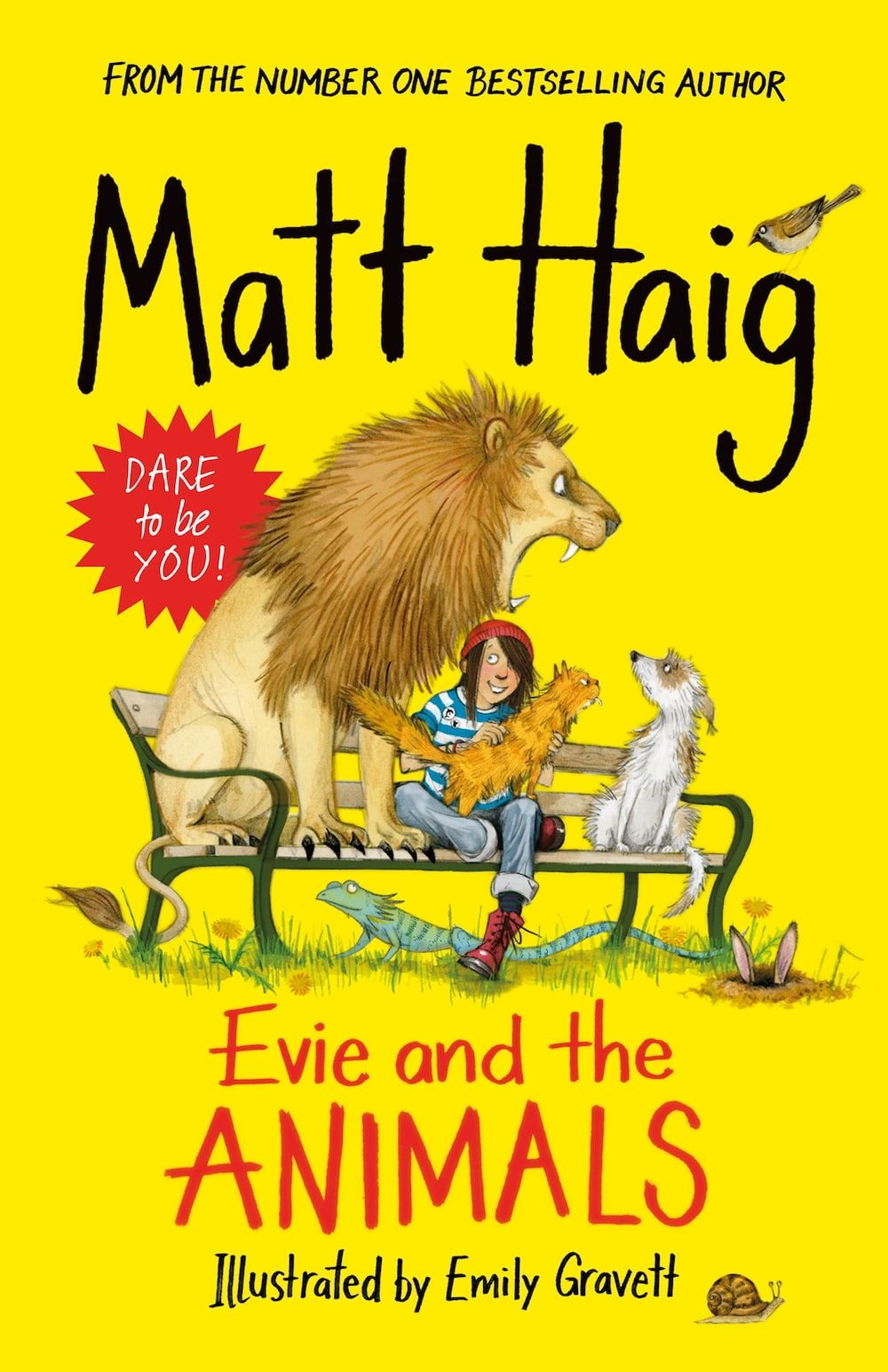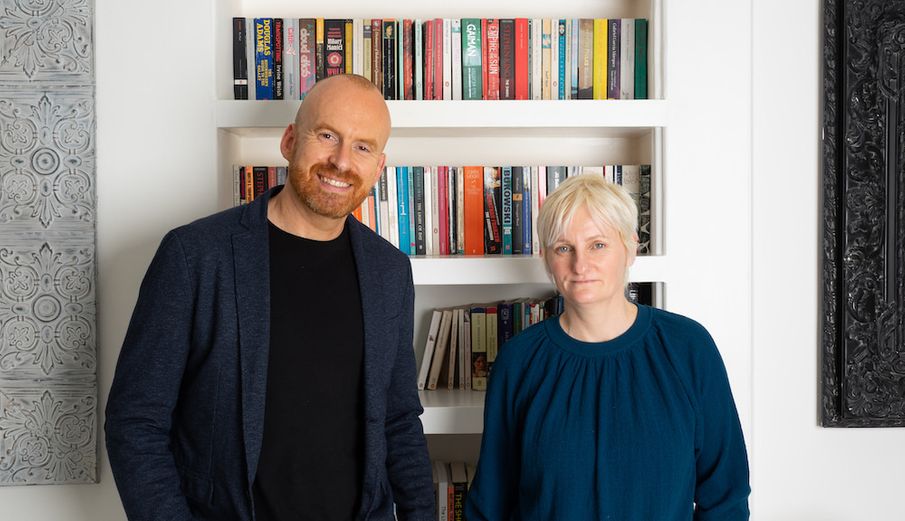Lucy Donoughue speaks to writer and mental health advocate Matt Haig about the therapeutic power of storytelling, nature metaphors, and the imaginations of children
Writer Matt Haig is a generous storyteller. He’s written a long list of books for both adults and children, fiction and nonfiction, and speaks regularly about mental health, using his own experience of a breakdown in his early 20s, and subsequent periods of anxiety and depression to start the conversation.
Since then, Matt has continued to draw upon his experiences in his writing and mental health advocacy. He now helps a huge number of people to articulate and understand their experiences of mental ill-health, through his books, including Notes on a Nervous Planet and Reasons to Stay Alive, and the inspiring quotes he posts regularly on social media.
Happening across these quotes online, as someone who experiences anxiety and depression, always gives me a moment to pause and reflect. They are hopeful, relatable and, I’m sure, allow many others with mental health challenges to feel ‘seen’ at that moment too. ‘You are not what you experience,’ one of my favourite posts reads. ‘If you are caught in a hurricane, you are not the hurricane. The weather will change. You will stay.’

Matt Haig
“I feel like metaphor is massively important when talking about depression and anxiety, because they are invisible,” Matt says. “So it’s very hard for other people to see what’s happening because it’s all in your head.
“The frustration is that to be seen as needing help, you have to articulate what you are feeling, and quite often people who are struggling can’t do that. I think that’s why these quotes resonate.”
For years, Matt struggled with this very same problem himself. “When I was in the depths of mental illness, I so wished I could explain to people around me what was going on – it’s very hard to, when you’re that low.
“I realise now, that by comparing mental illness with something we all experience, like nature, makes the concept easy to grasp for both people who have and who haven’t lived with these conditions. I feel like it was so important to me to find a way to articulate the impact of mental ill-health, and it’s probably why I spend so much of my time writing about it, now that I can.”
Whether writing for others or recovering himself, words and stories have played a huge role in Matt’s life. Reading, in particular, helped him when he had his first episode of mental ill-health.
“When I had my breakdown, when I was very ill, I couldn’t read at all. But when I was getting better, I read a lot; stories and fiction generally, can have a therapeutic effect. If you’re stuck in a bad time in your life, stories can take you out of yourself,” Matt says, referencing the escapism a good read can provide.
Reading a lot of fiction, Matt found the linear narratives, plot progression, and character arcs in these books helped him to recognise the possibility of forward motion from the dark place he was in.
“I really saw the benefit of narrative, how it shapes understanding, and how we make sense of our own lives through the stories we tell about ourselves. We are a species that runs on stories.”
Matt’s own story was catapulted into the best-selling section in 2015 when he released Reasons to Stay Alive, a memoir based on his experiences, and the journey back from a mental health crisis. He has subsequently written Notes on a Nervous Planet (‘inviting us to feel calmer, happier and to question the habits of the digital age’) and The Truth Pixie (she can only tell the truth), among many, many others.
Evie and the Animals is Matt’s latest offering for children, and was inspired by his daughter’s love of animals. It’s equal parts adventure, morality tale, and fantasy.
“My favourite kinds of stories are those with one foot rooted in the real world, and one rooted in fantasy,” Matt says. “It’s where a lot of our minds are – half in our reality, and half in our dreams.”
While Matt’s passion for writing is clearly evident, he reveals he really thrives from and enjoys, writing for a younger audience.
“The great thing about writing for children is that while their vocabulary and experiences might be smaller, their imaginations are much wider,” he explains. “We lose that as we get older. Children will understand something isn’t 100% real, but they will go with the daydream, unlike adults.
“So now, even when I’m writing for adults, I try to pretend that I am just writing for children who happen to be old, to keep my own imagination open.”
But it’s not just the world of imagination that’s important to Matt. A recurring theme in Evie is also our real-life environment, and specifically what we as adults are doing to harm the planet and it’s other inhabitants.
Your mental health is a garden, that you tend to and have to maintain, as it grows and changes
“I think we’ve lost our way,” Matt says. “We feel very removed from the natural world – even when we talk about ‘saving the planet’. It’s very tempting and easy to feel like the planet is something else we have to save, rather than we are the planet.
“One of the reasons we are destroying the world is because we see ourselves as separate from nature. It’s come to a point where we live such unnatural lives that it’s not only bad for our personal psychology, but it’s also bad for the state of the world, and the future prospects of our species.”
An element of the unnatural lives we live is our obsession with screens and social media, as opposed to the world outside our windows. As a writer and speaker, Matt is in the public eye, and has a major presence online too. How does he manage this?
“I used to be really bad, and would get into loads of long, pointless, drawn out arguments. Since then, I’ve learned more about how and when to engage with it – and when I need to ignore social media. I now take it all with a pinch of salt.
“Things can feel intense and heated in the moment, but a few hours down the line, it’s gone.
“Obviously it gets to me sometimes, but you have to place things in context,” he concludes. “People who are generally happy, calm and contented in their lives, aren’t trying to make strangers online unhappy.”
On a positive social media note, Matt was recently one of only 16 accounts followed by the Duke and Duchess of Sussex on Instagram, to highlight Mental Health Awareness Week (one of two individual’s accounts, the other being friend and Happiful favourite, Bryony Gordon). This brought a slew of new followers, which Matt says was “nice and very flattering”, but I don’t get the sense it has changed his wary ‘pinch of salt’ perspective around social media.

Matt's latest book, 'Evie and the Animals'
As we end our conversation, I ask Matt where he is in regards to thoughts on his own mental health? His response again shows his deep affinity with the natural world.
“I accept that, as with everyone’s mental health, it’s a changing landscape; your mental health is a garden, that you tend to and have to maintain, as it grows and changes.”
“And as you get older you understand what makes you feel worse or better, and you start to piece the story together, almost like a detective – the reason why you’ve felt ill, and any patterns there are. It means that when you wobble, there’s no panicking – you put your own coping systems in place.
“And remember,” he says emphatically, “every time you’ve been ill you’ve recovered. You may have practice in getting ill, but that means you’ve also practised getting better.”
Matt Haig’s ‘Evie and the Animals’ is out now (£12.99, Canongate)


Comments